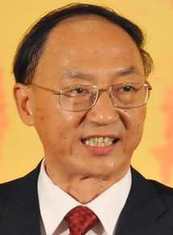China
Common people to score on sports facilities
By Lei Lei (China Daily)
Updated: 2011-01-11 07:50
 |
Large Medium Small |
MEETING MINISTERS LIU PENG
BEIJING - China's sports minister vowed to provide more public sports facilities in the coming five years.
"Our goal for the next five years is raising people's interests toward sports, improving people's physical condition and developing public sports facilities in more cities and counties," said Liu Peng, minister of the General Administration of Sport.
Liu said the 12th Five-Year Plan (2011-2015) is an important stage for China's development into a real sports powerhouse.
As a rising sports nation, China has achieved great success in the past five years, and for sports head Liu those achievements are motivating more people to join sports.
"Promoting sports among common people in order to help them improve their physical condition is always the most important task of China's sports," said Liu. "Those gold medals won by athletes play a significant role in uniting people and arousing their enthusiasm toward sports."
 |
|
Liu Peng is minister of the General Administration of Sport. [China Daily] |
In the past five years, Chinese athletes have won 634 world championship titles and set 88 world records, Liu said.
At the 2008 Beijing Olympic Games, China claimed a record high 51 gold medals, leading the gold medal tally for the first time.
At the same time, common people have been enjoying more and more facilities.
During the last five years, basic sports facilities have been set up in some 200,000 villages across China, about double the original goal set in the last Five-Year Plan. There are more than one million sports venues throughout the country.
To further promote sports, the State Council passed the Regulations on National Fitness in 2009, the first national regulations to stipulate that citizens have the right to participate in national fitness activities. Also, the date of the opening ceremony for the 2008 Beijing Olympics, Aug 8, was named National Fitness Day.
At present, there are 650,000 trainers, including dozens of world and Olympic champions, working in communities to help people with their daily sports routines.
"We have invested more to promote sports among the common people than to train professional athletes," Liu said.
"According to my understanding, a real sports powerhouse requires that people's awareness of sports - and their physical abilities - reach the level of those in developed countries, and the country should provide advanced public sports services. We still have to work harder to reach that."
As for competitive sports, preparing for the 2012 London Olympics Games is a key task, as well as balancing the development of all the sports.
"For the London Olympics, we may face strong challenges, since we are no longer on home soil and our opponents will carefully research us since we had a leading position at the Beijing Games," Liu said. "Since some veterans have retired, we will send a young squad to London. We hope we can achieve good results again."